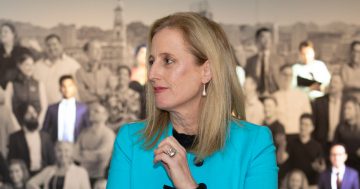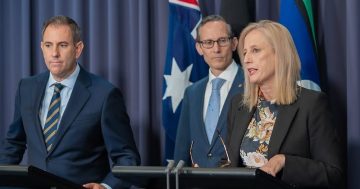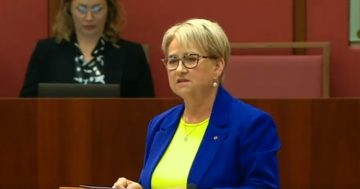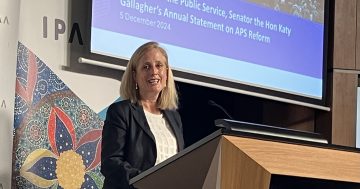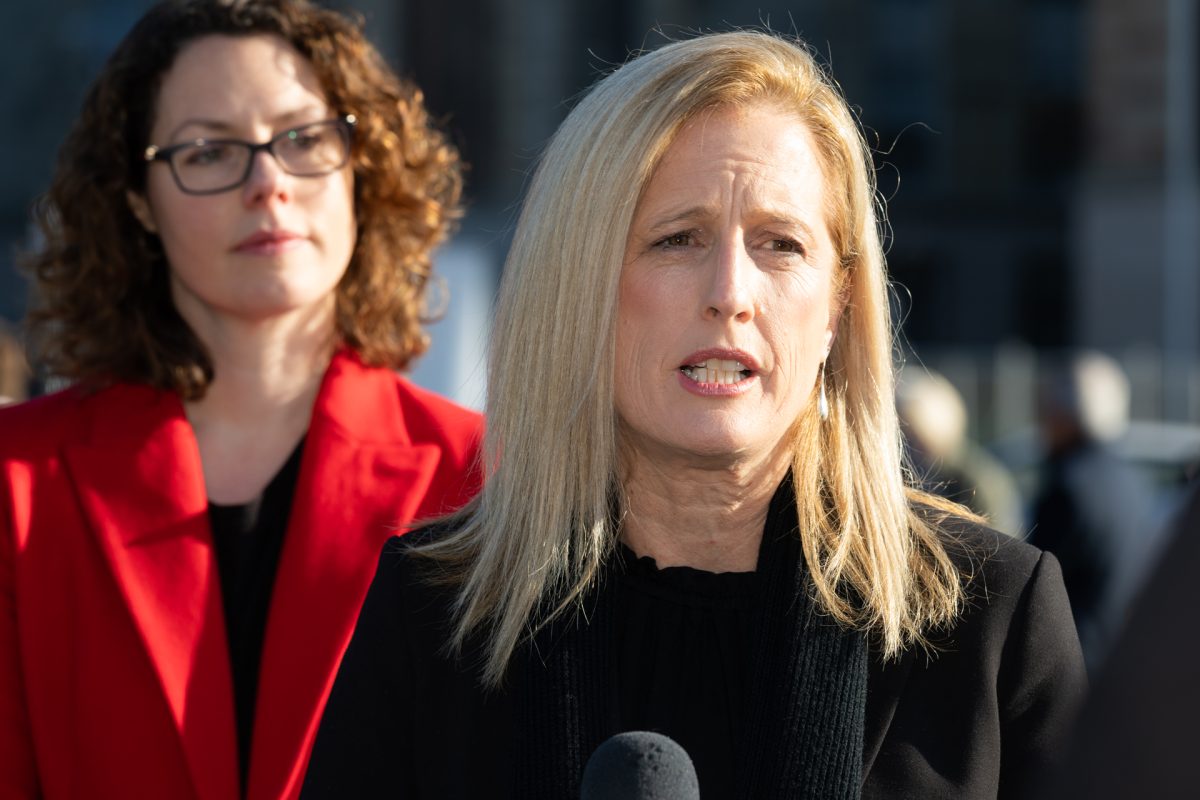
Public Service Minister Katy Gallagher is keen on in-house APS consulting. Photo: Michelle Kroll.
Australian Government Consulting – get used to the name – is hopefully going to be around for a while.
This week, Public Service Minister Katy Gallagher announced the appointment of Andrew Nipe as Chief Consulting Officer and Joanne Rossiter as Deputy Chief Consulting Officer for the Australian Government’s in-house consultancy function.
That ‘function’ is what we know as Australian Government Consulting, designed to draw on the vast and varied experience within the Australian Public Service instead of relying so heavily on external consultants and contractors.
Labor made a lot of noise during last year’s federal election campaign about far too much money being spent on a workforce external to the APS’s own.
Promising to act on the issue if they won office, the commentary around the huge consultancy spend and the need to do something about it resonated with the voting public.
Now in government, Labor has been confronted with the enormity of just how entrenched consultants are in government work.
Contracts and contractors will always be a feature of delivering government projects and policies, but the over-reliance got out of hand and needed to be reined in.
Easier said than done, although the government is acting on its commitment to cut down on outsourcing to external consultancies and look to the government’s own workforce first.
And so, Australian Government Consulting was formed and appears to be more than window dressing.
So far it is close to completion on two pilot projects – one being partnering with the Centre for Australia-India Relations to analyse opportunities for closer collaboration between federal and the state and territory governments on economic engagement with India.
The other is partnering with the new Net Zero Economy agency to develop its vision and undertake strategic business planning.
If it stays the course, over the next two years, Australian Government Consulting will deliver at least 15 projects and support the APS to better leverage its own expertise and get better value from external consultants when they are contracted.
Or so says the government, and let’s hold them to it.
Senator Gallagher says the newly installed Australian Government Consulting leadership team brings extensive experience in the private and public sectors and a commitment to “developing solutions for complex public policy issues”.
Mr Nipe most recently served as Victoria’s chief data officer, following executive leadership roles in education policy.
He has worked at McKinsey, Bain and UK Treasury and holds a Master of Public Policy from Harvard Kennedy School.
Ms Rossiter joins Australian Government Consulting from the Department of Employment and Workplace Relations where she led landmark national skills reform.
She has senior experience in management consultancy at Nous and holds a Master of Public Policy from Oxford.
Plus, the government has committed $10.9 million over two years from 2023-24 to ensure this in-house consultancy venture succeeds.
Senator Gallagher says this is all part of a concerted push to build on the deep expertise that exists across the APS.
“Australian Government Consulting will offer public servants the opportunity to work across departments on projects that have, in the past, been outsourced to external consultancies,” Senator Gallagher said.
“Not only will this new function strengthen internal skills and capabilities by bringing important work back into the APS, but it will also save the taxpayer money.”
There is a lot of interest in this new initiative, and people want to be part of it.
Initial recruitment for in-house consultants to work with Australian Government Consulting attracted significant interest from outside government.
Nearly 1000 applications were received across all levels advertised, which is more than any other Prime Minister and Cabinet recruitment outside graduate intake.
Next year, the fledgling internal consulting office will work with agencies across the APS to build a pipeline of projects.
Just how effective – and cost-effective – Australian Government Consulting turns out to be is yet to be realised, of course.
But this approach has merit and is a good example of thinking outside the box … and inside the APS.
Original Article published by Chris Johnson on Riotact.


